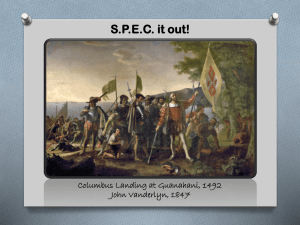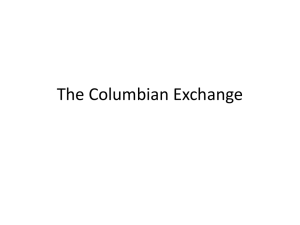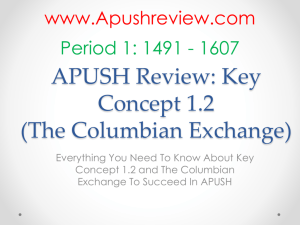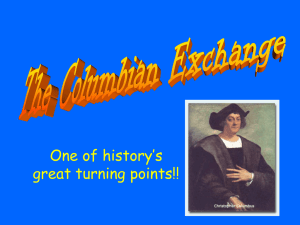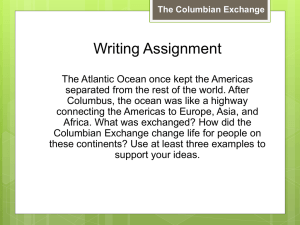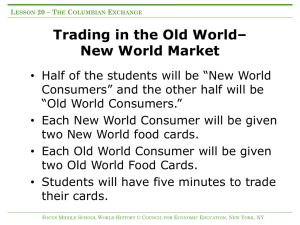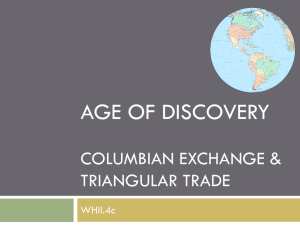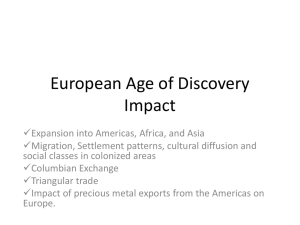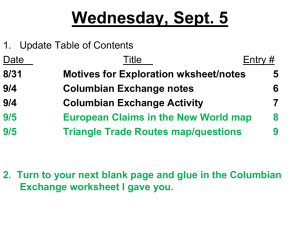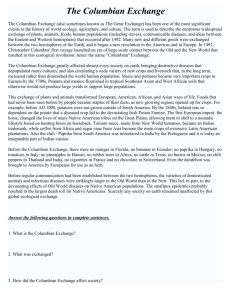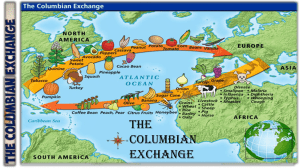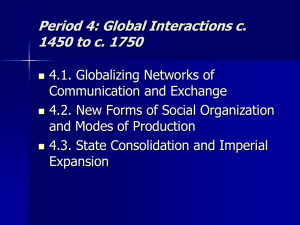Columbian Exchange and Triangular Trade Dbq Pwp
advertisement
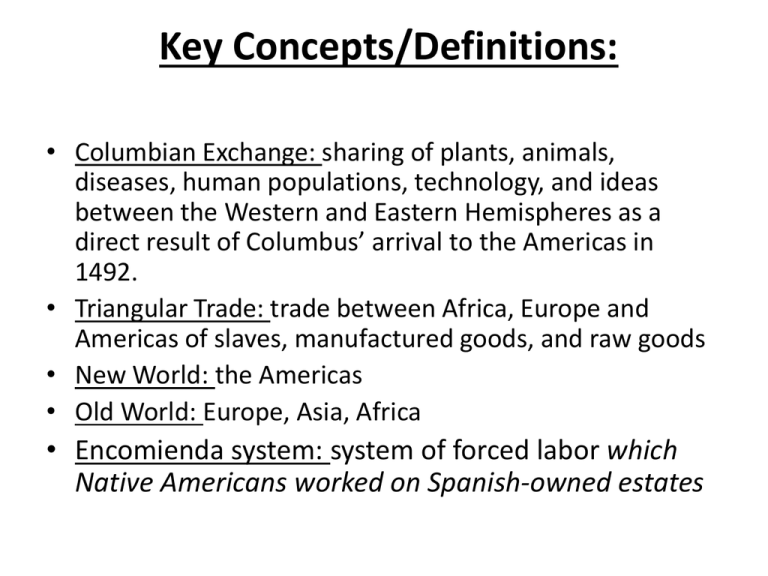
Key Concepts/Definitions: • Columbian Exchange: sharing of plants, animals, diseases, human populations, technology, and ideas between the Western and Eastern Hemispheres as a direct result of Columbus’ arrival to the Americas in 1492. • Triangular Trade: trade between Africa, Europe and Americas of slaves, manufactured goods, and raw goods • New World: the Americas • Old World: Europe, Asia, Africa • Encomienda system: system of forced labor which Native Americans worked on Spanish-owned estates Hook “Where is that food from?” Use slide 2 1.Decide where the plants and animals originated (the Americas, Europe, Asia, and Africa) Background The term, “Columbian Exchange” refers to the exchange of biological commodities(see below) and ideas between the Old World and the New World as a result of the European voyages of exploration that started with Christopher Columbus. “Biological commodities” means living things, or things that were once alive. Examples would include domestic animals, agricultural products, microbes (bacteria and viruses), and even people—some of whom (slaves) were actually treated as commodities to be bought and sold. Prior to 1492, many of these biological commodities had never crossed the ocean. When the two hemispheres finally came into contact, the Columbian Exchange would dramatically and permanently affect human societies and the natural environment on both sides of the ocean. 1. 2. 3. 4. 5. What does the term Columbian Exchange mean? For whom is the Columbian Exchanged name for? What is a biological commodity What type of people were treated as commodities? According to the reading many commodities never crossed the ocean prior to 1492, what does this mean and state why you believe that to be true. 6. List at least 3 ways the Columbian Exchange “permanently and drastically” affected the world?
